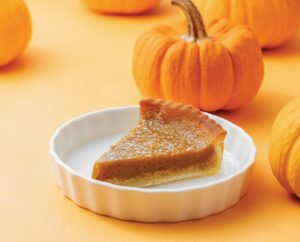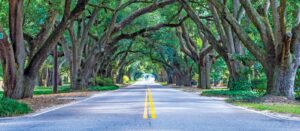I am a firm believer in the people. If given the truth, they can be depended upon to meet any national crisis. The great point is to bring them the real facts, and beer.
Abraham Lincoln
Two months at sea and hopelessly north of their course to the Virginia colony, the desperate passengers and crew of the Mayflower were running out of beer. As in Europe, beer was a trusted drink instead of the perpetually contaminated water. Besides that, Captain Jones worried about sustaining his crew with beer on the trip back across the Atlantic Ocean. In 1620 the ship docked in Cape Cod; but the passengers balked at leaving the ship, saying, “were hastened ashore and made to drink water, that the seamen might have the more beer.”
Leery of and unaccustomed to drinking fresh water, the Pilgrims sent their leader, William Bradford, to demand that the captain of the Mayflower share the beer onboard. Captain Jones rejected their request, but during the winter the Pilgrims returned to the ship trying to survive the cold, bitter weather; The captain shared some of his beer with the Pilgrims on Christmas Day.
Drinking beer doesn’t make you fat;
It makes you lean … against bars, tables,
chairs and poles.
Author Unknown
Brew, American Style
The Pilgrims quickly learned from the American Indians how to craft beer using resources in their new environment. Flip, a popular brew of the colonists, was made from a pumpkin mixture beer and a dash of rum. Early American brewers also used ground ivy (a weed) or black or red spruce shoots instead of hops. Molasses and ripe persimmons were alternative sugars in the beer recipe.
William Penn wrote that in his colony of Pennsylvania, the beer was made of “Molasses well boyled, with sassafras or pine infused into it.” By the middle of the 17th century English and Dutch beer crafters opened personal and commercial breweries in the colonies. George Washington, Patrick Henry, Samuel Adams, and James Madison promoted the brewery business. Washington created beer at Mt. Vernon; His handwritten recipe is on display at the New York Public Library. Business was booming so well that Washington, Henry, and other revolutionaries tried to organize a boycott of beer imported from England, bringing them close to a Boston Beer Bash instead of the Boston Tea Party. As Commander of the Continental Army, George Washington ordered a quart of beer as daily rations for his troops.
Beer is proof that God loves us
and wants us to be happy.
Benjamin Franklin
Winds of Change
In the mid1800s German immigrants living in Denmark made an exodus to America to escape war, bringing with them their desire for all-malt lager beer. The new beer drinkers also brought novel brewing methods and different yeasts that produced a crisp lager product. German immigrants influenced beer preferences in the United States. By the 20th century, American cities were filling up with neighborhood breweries serving newly crafted recipes.
All beer was craft brewed until 1865, when
mass production of beer replaced small breweries. By 1960 light lager beer dominated sales and beer production from craft breweries plummeted. There were less than 50 craft commercial brew makers.
Fritz Maytag (grandson of the home appliance founder) was determined to revitalize San Francisco’s Anchor Brewing Company. Craft brewing appealed to him as he set his sights on creating darker, hardy beer. His success was the pivot point for the crafting business as breweries rebounded in number and production of beer.
In the 1970s home brewing became popular, and many entrepreneurs launched profitable businesses. President Jimmy Carter signed into law a bill that declared it was legal to home brew wine and beer in 1978. Today there are over 7000 breweries in the U.S. with over 1, 000 opening
up this past year.
Two beer, or not two beer?
That is the question.
Shakesbeer
In a study, scientists report that drinking beer can be good for the liver. I’m sorry, did I say scientists? I meant Irish people.
Tina Fey
Craft Beer Bits
The main ingredients in craft beer are malted grain (usually barley), yeast and hops. Craft breweries are independent, small creators of beer. Other beer bits are:
- Most Americans live within 10 miles of a craft brewery
- Hops are the flowers or seed cones of the hop plant, Humulus lupulus.
- Malt is germinated cereal grain.
- Crafted beer is 90% water
- The saying “rule of thumb” comes from beer crafters sticking their thumbs into the mix to test the temperature for adding yeast.
- Hops are poisonous to pets
- Snails and slugs like the crafted brew. Put some beer in a shallow pan to get rid of them.
- Craft beer has high levels of silicon, which is good for the body
- The amount of malt influences the color of beer
- Washington, California, Oregon, and Colorado are home to the most craft breweries
- The United States is the second largest hops producer in the world (Germany is first).
- Presidents George Washington, Thomas Jefferson, James Madison, and Barack Obama were beer crafters
- The standard growler is 64 ounces
- Frosted glasses make beer foam
- Cities with the most brew pubs are Chicago, Seattle, San Francisco, Los Angeles, Portland, and New York
- A brewpub is a bar that is owned by a brewery and serves beer directly to consumers. By law, an establishment can only be called a brewpub if it sells 25% or more of its beer on-site. Brewpubs have a unique appeal for many consumers because they dispense beer directly from the brewery’s storage tanks.
- Cenosillicaphobia is the fear of an empty glass. Crafted beer has been said to be a remedy for this ailment.

Phyllis Maclay is a published writer of articles in Country Woman Magazine, Parent Magazine, Easy Street Magazine, and Lancaster, Pennsylvania, newspapers. Originally from Pennsylvania, Phyllis moved to Aiken from South Texas. She has published children’s plays and her novel, A Bone for the Dog, a chilling story of a father trying to rescue his little girl, is available at Booklocker.com and through her FB page. Her story, Sweet Brew and a Cherry Cane, appears in the anthology Nights of Horseplay by the Aiken Scribblers.






